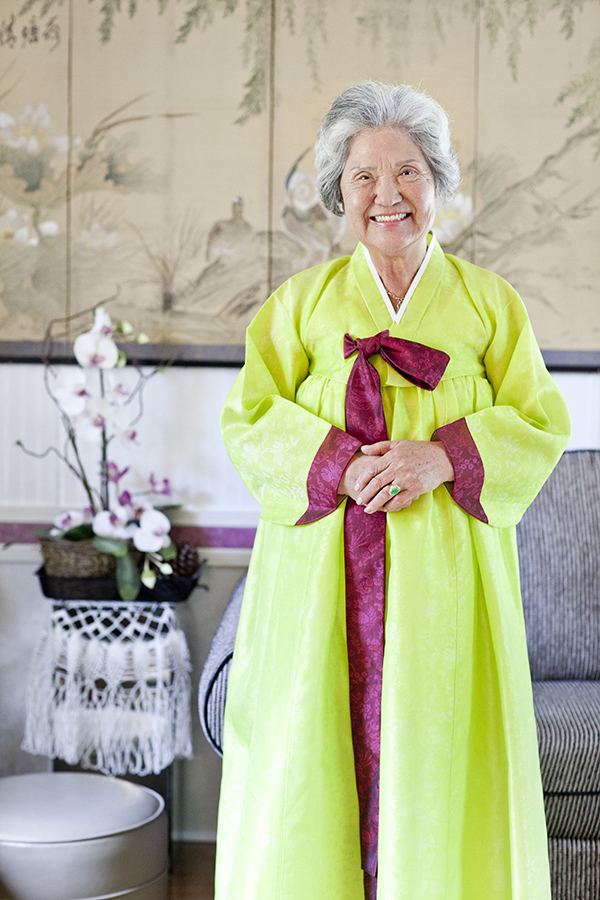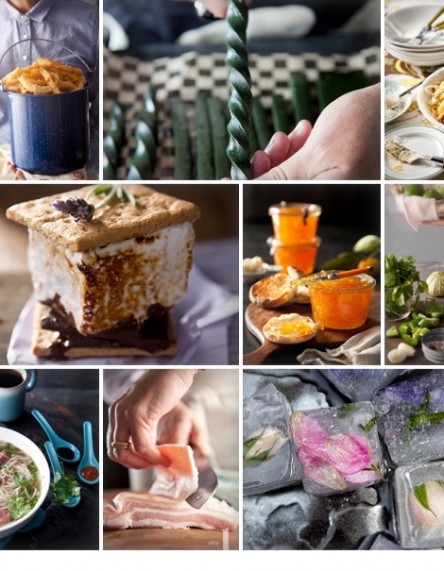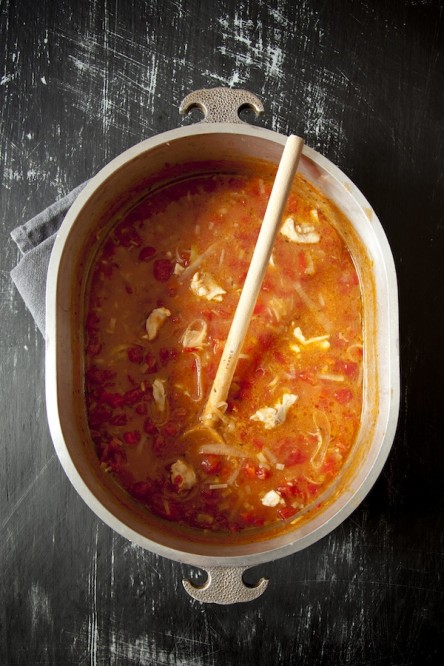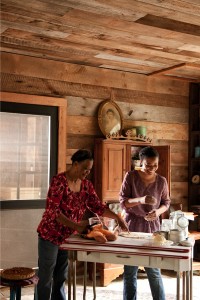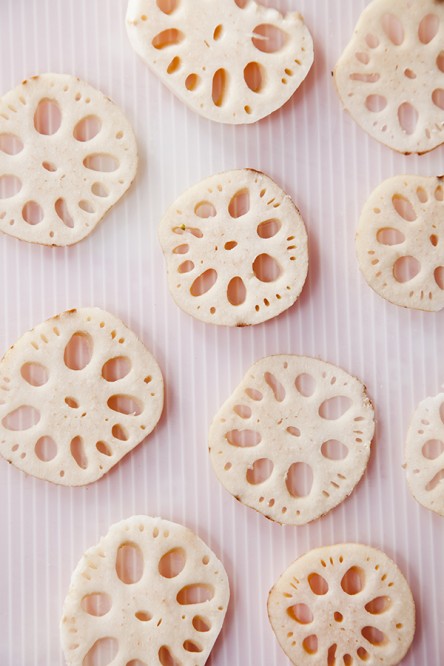Words by Andrea Goto
Photography by Chia Chong
Ho Shim is worried that I’m hungry. Even after I tell her I had a sandwich not 20 minutes earlier, she frowns and turns to her youngest daughter, Kay, as if for an explanation.
“She’s not hungry,” Kay says to her mother softly.
Ho Shim looks back at me as if I traipsed cow manure into her shoe-free home.
“But I can eat again,” I offer with a smile.
Ho Shim brightens and scurries around her tiny kitchen with renewed purpose, pulling thinly sliced vegetables from a variety of containers. Her daughter seems relieved by my submission, as if they’ve danced this dance a hundred times before.
Ho Shim’s mobile home is fairly big considering its portability. The deck leads into the kitchen through a sliding glass door. To my right is a door leading to the bedroom; to my left is an open living room. A Korean soap opera is on TV though no one is watching it. All of the right angles in the rooms are filled with framed photographs, nick-knacks and a combination of real and silk potted plants. It’s impeccably clean, yet there’s a yellowish-hue to everything, though not from age so much as sunlight.
Ho Shim has lived in the quiet, rural town of Bloomingdale—just 20 minutes outside of downtown Savannah, Ga.—for 16 years. She moved here from just outside of Sacramento, Ca., to be closer to Kay after the death of her second husband from brain cancer. A mere 50 paces from Kay’s home, Ho Shim lives quietly, attending a Korean church, cooking, cleaning and helping her daughter raise her four children.
When the food is ready, I’m ushered outside to a bench on the deck where Ho Shim presents me with green tea and a deep bowl of bibimbap. She tells me in her gravelly voice that I’m supposed to mixed the ingredients together as I eat, and gestures in case I don’t understand. Then she sits in a chair next to Kay and watches me eat, to be sure that I enjoy it. To say I do is an understatement.
The rest of the story is about not getting the story.
When I ask Ho Shim about coming of age during the Korean War, she begins by telling me that Korea was a very poor and unstable place. Because of Japan’s occupation, she was only allowed to go to school through the third grade. As she speaks, she stares into the woods beyond me with small eyes as if she’s looking to a memory so far away, she has to squint to find it. But at the end of her thoughts, she comes back to me, making eye contact or laughing and covering her face when she’s embarrassed.
At one point, Ho Shim explains that her father ran her mother out and she and her two siblings were never to see her again. Then her father remarried a woman with five children of her own. As the oldest, Ho Shim became a slave in her own home. It’s at this point that she becomes unsure of her English and falls into speaking Korean. She talks to the land for a long time before looking back at her daughter to translate.
Kay simply says, “She was not treated very well. She was abused.”
As a daughter, I understand. But as a writer, I wish my understanding of Korean extended beyond “bibimbap.”
From there I pick up bits and pieces of what Ho Shim says of her past. She ran away from home many times to work as a housemaid for other families in exchange for room and board. At one point she gestures as if pulling a stubborn root from the ground. She’s so convincing as she does this, I worry that she may injure her back.
“All she can really remember about her work,” Kay explains, “is drawing water from a deep well.” And then she pauses and says softy, “Some of these stories are new to me, you know?”—which really says so much more.
When I ask Ho Shim about her first marriage to Kay’s father, she again looks to the distance and speaks for a long time. Kay again translates for me: “Her first husband, my father, was not a good man. There was a lot of hardship. He died when I was just 9 months old.”
I feel as if too much is being lost in translation—75 years, to be exact—but I have to consider that maybe I have not earned the right to these memories. Yes, it’s the writers job to get the story—and believe me, I considered getting a Korean speaker to translate my recording of our interview—but maybe the story isn’t as much about the details of Ho Shim’s difficult past as it is about the present moment.
As I scrape the last of my bibimbap from the bowl and long for more, Ho Shim leans forward in her chair with her hands folded neatly in her lap, and says slowly and deliberately, “My life before, very hard. But life now, is like Heaven. This is the best I’ve had.”
For me, this is where the story ends. For Ho Shim, it’s where it begins.

